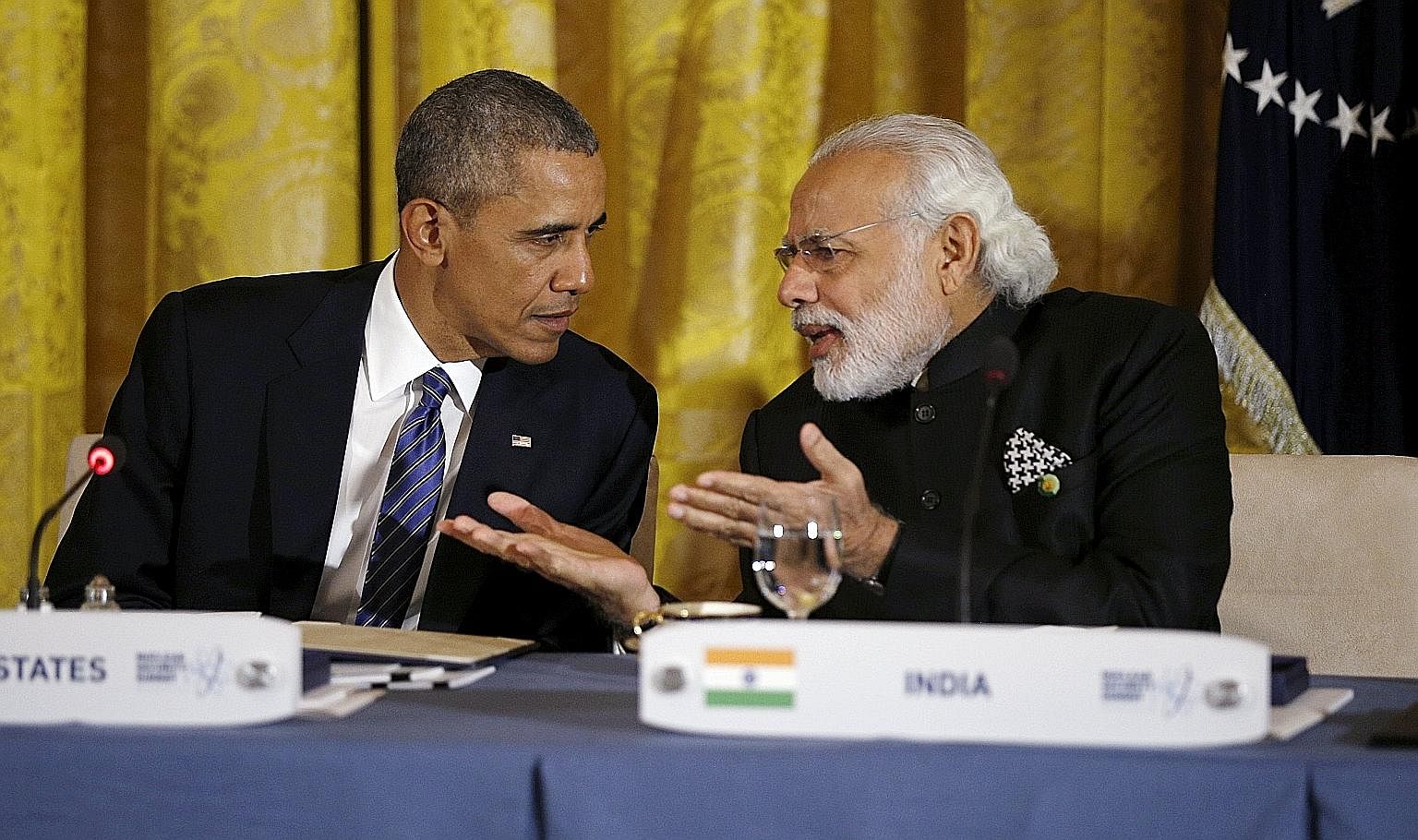When Indian Prime Minister Narendra Modi heads to Capitol Hill this week to address a joint meeting of the US Congress, it will mark the complete turnaround of his personal relationship with the US government.
Though every single full-term Indian Prime Minister since 1984 has addressed US lawmakers, Mr Modi's invitation to do the same is considered far from routine.
After all, as India watchers in the US capital point out, it wasn't that long ago that the US legislative body was barring him from entering the country.
Mr Ronak Desai, an affiliate of the India and South Asia Programme at Harvard Kennedy School's Belfer Center, said it was Congress, working together with the State Department, that effectively prohibited Mr Modi from setting foot in the United States in 2005.
Alleging that he, as chief minister of the state of Gujarat, had failed to act to stop the communal riots there in 2002, US lawmakers revoked his visa.
"Almost 10 years later, Prime Minister Modi is now addressing the very same body that prevented him from coming to the United States. As a result, the June 8 appearance in front of Congress is suffused with important symbolic meaning," he told The Straits Times.

Even when the Obama administration sought to repair ties in the lead-up to Mr Modi's electoral victory, the US Congress was slow to embrace the leader.
When Mr Modi made his inaugural visit as prime minister to the US in 2014, then House Speaker John Boehner wrote a letter saying he was unable to issue an invite for the PM to address Congress because of the "unpredictability of the House schedule" but left the door open for a future speech.
US and India ties have since blossomed with President Barack Obama and Mr Modi developing a strong personal rapport.
Thus, for Mr Rick Rossow, the Wadhwani Chair in US-India Policy Studies at the Centre for Strategic and International Studies, the speech on Wednesday helps "repair any sentiments that have not healed over time". As to what sort of message the Indian PM will bring before Congress, most expect it to be an affirmation of strengthening ties.
"I believe Prime Minister Modi will generally point out the long-acknowledged shared values. But also how India is more actively pursuing its real interests - both economic and strategic interests, and the ways that partnership with the US is essential for India to meet its own goals," said Mr Rossow.
Mr Modi is also expected to engage Congress behind closed doors on a series of other legislative issues of interest to the Indian government. These include the limits on the H1B visa that is currently heavily used by Indian tech firms in the US .
It will also be during these behind-the-scenes meetings that most expect there to be any discussion of the lingering concerns lawmakers may have with India's human rights record.
"Genuine concerns about religious freedom in India continues to persist in the legislative branch," said Mr Desai. "Many members, including congressional leadership, are likely to raise these concerns with Prime Minister Modi in a private setting. The overall welcome, however, will remain enthusiastic to signal that support for the broader US-India relationship transcends any one leader."
In Mr Modi's meeting with Mr Obama, analysts will mainly be looking for progress on civil nuclear cooperation between the two countries. A longstanding deal that would let India buy US nuclear technology for power plants has thus far produced no action because of disagreements surrounding a liability law in India. There have been encouraging signs of late and analysts say it is possible an announcement will be made for US companies to build nuclear reactors in India.
